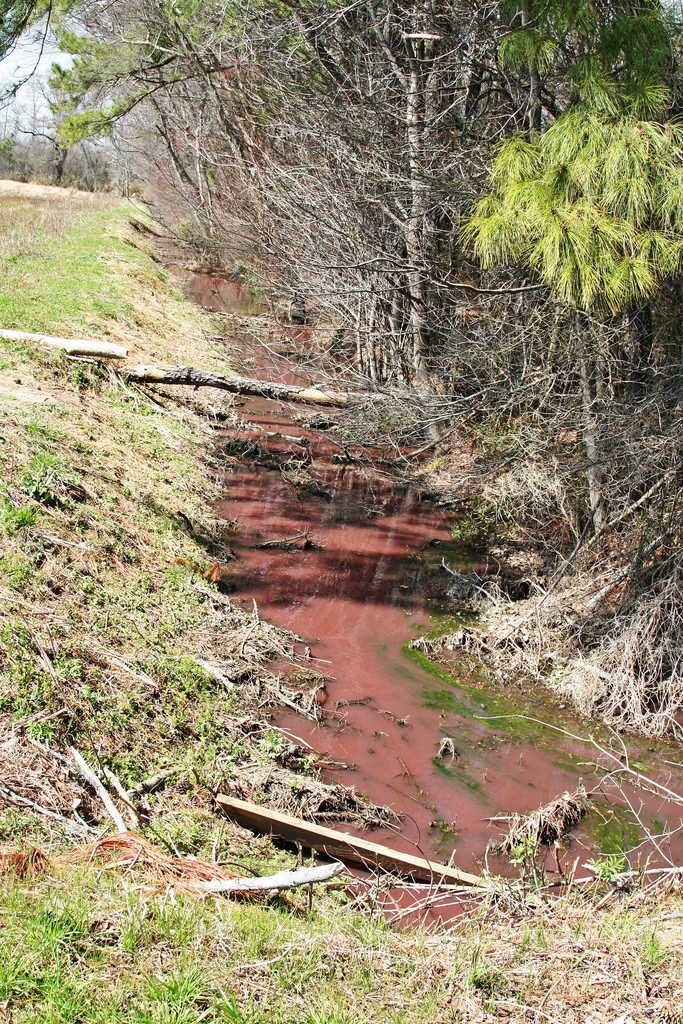Waterkeepers threaten lawsuit against politically connected NC hog farm

Environmental groups have issued notice that they intend to sue the owners and operators of a North Carolina industrial hog farm over illegal discharges of waste into groundwater, wetlands and streams. The farm's president is Wendell H. Murphy Jr., a major political donor and the son of an influential former state lawmaker.
The action by North Carolina's Neuse Riverkeeper Foundation and the national Waterkeeper Alliance targets the Stantonsburg Farm in Greene County in eastern North Carolina, a major center of hog production. The facility raises swine for Murphy-Brown, a subsidiary of Smithfield Foods, which was recently acquired by Hong Kong-based Shuanghui International Holdings Ltd. The farm currently houses about 5,000 hogs. It stores the approximately 12 million gallons of waste they generate each year in an open-air lagoon and then sprays it onto 85 acres of adjacent fields.
“The smell, the flies and the pollution from this facility has destroyed our quality of life and causes constant stress," said Don Webb, who lives next to the farm. "How would you feel if you couldn't drink the water from your own well, go to church without the smell of hog waste permeating your clothing, or even have a barbecue with friends on your own property? Living next to a creek that often fills with raw swine excrement makes me wonder if it's safe for my neighbors to be around here."
Drinking water contaminated with nitrates from hog farm runoff can increase the risk of blue baby syndrome, which can cause deaths in infants. High levels of nitrates in drinking water near hog farms have also been linked to spontaneous abortions.
People living near the Stantonsburg facility have tried to get the company and the N.C. Department of Environment and Natural Resources to address problems with odor, fly swarms, waste discharges, and well pollution since the facility began operations in the 1990s, without success. Though North Carolina is now controlled by Republicans, Democrats were in power for much of that time.
The junior Murphy, who owns half of the farm's corporate shares, is the son of former Democratic state lawmaker and billionaire hog farmer Wendell Murphy, who was involved in passing legislation that benefited North Carolina's pork industry. A 1995 Pulitzer Prize-winning investigation by The News & Observer of Raleigh, N.C. reported that the senior Murphy once gave a business-friendly state lawmaker a $100,000 campaign contribution -- far in excess of the $4,000 limit. The illegal contribution was eventually discovered by the State Bureau of Investigation, but Murphy was not prosecuted because the two-year statute of limitations had run out.
The junior Murphy is also a major political donor whose giving in recent years has mostly benefited Republicans. Among the North Carolina officials he made major contributions to in the last election cycle, according to the National Institute on Money in State Politics' FollowTheMoney.org database, are Gov. Pat McCrory, Agriculture Commissioner Steve Troxler, Senate President Pro Tem Phil Berger, House Speaker Thom Tillis, and House Agriculture Committee Co-Chair Jimmy Dixon, all Republicans.
The groups behind the threatened lawsuit say swine waste from Murphy's farm is running into tributaries of the Contentnea Creek and Neuse River. They plan to file suit under the citizen enforcement provisions of the federal Clean Water Act if the company does not take cleanup action within 60 days. The environmental groups are working on the case with Public Justice, a national public interest law firm, and Davis & Whitlock, an environmental law firm with offices in North Carolina and Tennessee.
The announcement about the planned lawsuit comes just weeks after Waterkeeper organizations called on Gov. McCrory to declare a state of emergency over a viral epidemic that's killing hogs en masse, leading to disposal concerns. Dead hogs are typically buried in mass graves, which presents a risk of contaminating shallow groundwater and nearby streams. They groups also raised concerns about hog carcasses being left out in the open for days in "dead boxes," leading to issues with runoff and wild animals spreading the virus.
Last week, however, Agriculture Commissioner Troxler said the state would not seek a declaration of emergency. He also challenged the watchdog groups' assertions that there were problems with disposal of dead hogs, saying unannounced flyovers he ordered turned up no issues.
Tags
Sue Sturgis
Sue is the former editorial director of Facing South and the Institute for Southern Studies.
